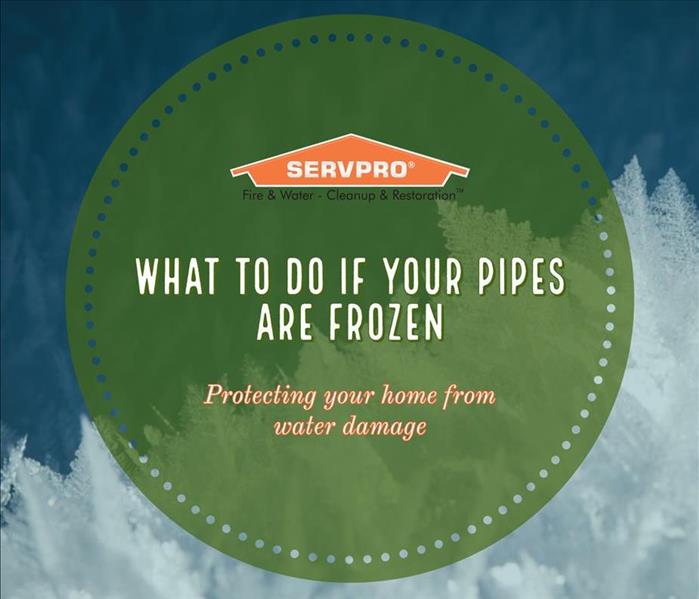What to do if you have frozen pipes.
2/8/2021 (Permalink)
This is the time of year where harsh North Dakota winters pose the biggest threat of frozen pipes to your home. When water freezes in your home’s pipes, the water molecules expand into an ice blockage preventing water from passing through. This creates a pressure buildup in the pipe which can lead to a burst and a wet mess throughout your home or business. With North Dakota’s long stretches in negative degree temperatures, your home’s water pipes can quickly freeze if not taken care of. Here are some ways to know if your pipes are frozen and some remedies for how to fix them if you discover one is frozen.
Most of the time, a frozen pipe is not obvious. This can cause a problem as you will not even know it is frozen until too late. Signs of a frozen pipe include:
- No running water or only a trickle. In these cases, the pipe leading to the tap may be frozen.
- Frosted over pipes . If you can see frost on a visible pipe, there’s a good chance that it’s frozen. Of course, this is more difficult to check on pipes that are not in visible areas.
- Odd smells. If a pipe is blocked because of freezing, you or your tenants may notice an unpleasant smell coming from the taps or drains.
If you suspect a pipe is frozen, you should immediately shut off your main water line to prevent further water from flowing into the pipe. Next, you should attempt to slowly thaw out the pipe, if possible. DO NOT use open flames to thaw it out but other heat sources such as a hairdryer or towels soaked in hot water or increasing the temperature of the room by bringing in warm air.
If you suspect your pipes are at risk of bursting, immediately call a plumber and have extra towels ready to soak up a spill. Additionally, find a water mitigation company (such as SERVPRO of Minot) and be ready to call them to cleanup any mess that may occur if the pipe bursts. The sooner a technician can arrive, the more damage can be prevented.
While frozen pipes can be a dangerous situation, if discovered soon enough, you can take steps to protect your home and avoid a costly cleanup charge.






 24/7 Emergency Service
24/7 Emergency Service
